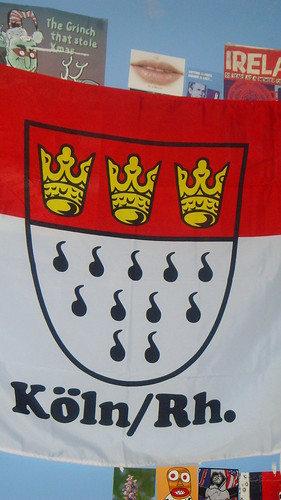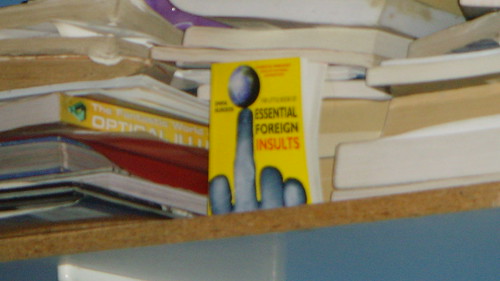
Well I have decided to stop posting to this blog as I haven't posted here in ages and so in furture will post what I post here on my other blog.
This blog shall remain as an archive!
The Blogging Male Au Pair!




| From October Bank holiday 2008 - Kerry |
| From October Bank holiday 2008 - Kerry |
| From Halloween 2008 |
| From Halloween 2008 |



Aaron: Lives on the ground floor in a sea of beer making paraphenalia and furniture stolen/"acquired" from various front gardens.
Valerie: Lives between the stairs in the room with the slanty floor, the radiois always playing! Thomas (the good step) will lead you there!!! but watch out for george, he's the bold one!
Jo: Lives in the attic aka HOGWARTS, she has a secret TV up there! but SSSH!!!
Michelle: Our future doctor, lives in the room beside chanto's with her ebay purchases and jewellery collection!
Chanto: Her room is for princesses and ponies only, is filled with clothes and shoes!!!







So long, farewell, auf Wiedersehen, adieu
Adieu, adieu, to yieu and yieu and yieu
So long, farewell, au revoir, auf wiedersehen
I'd like to stay and taste my first champagne
So long, farewell, auf Wiedersehen, goodbye
I leave and heave a sigh and say goodbye -- Goodbye
Red sky at night, shepard’s delight. Red sky in morning, shepard’s warning
One for sorrow,
Two for joy,
Three for a girl,
Four for a boy,
Five for silver,
Six for gold,
Seven for a secret
Never to be told
30 days hath September
April, June and November
all the rest have 31
save February with 28
but once in four
has 1 day more.





Be grateful to those who made your trip unforgetable









127: Longerich - Pesch - Mengenich - Ossendorf
132: Meschenich - Rondorf - Arnoldshöhe - Chlodwigplatz - Heumarkt - Dom/Hbf.
136: Neumarkt - Rudolfplatz - Lindenthal, Dürener Straße - Hohenlind
145: Bachem - Frechen - Weiden - Lövenich - Widdersdorf - Bocklemünd
148: Ossendorf - Bilderstöckchen - Geldernstraße/Parkgürtel - Nippes S-Bahn - Ebertplatz
152: Porz - Eil - Ostheim - Mülheim - Stammheim - Bayerwerk/S-Bahn
154: Porz Markt - Rath/Heumar - Königsforst - Brück - Dellbrück - Dünnwald
159: Holweide - Buchheim - Mülheim - Buchforst - Kalk - Poll
160: Porz Markt - Eil - Urbach - Grengel - Wahn S-Bahn - Lind



Here is your chance to visit our new ITV Prime Time Show called „Beat The Star“ hosted by Vernon Kay.
„Beat The Star“ is a reworked version of the German series titled „Schlag den Raab“ (Beat the Host). In contrast to the German concept, each show in the UK version will feature a celebrity to compete with a member of the public. Just as in the German version, the two will have to take part in a number of competitions, including sports, knowledge and dexterity. If the contestant beats the celebrity opponent, the contestant will win £50,000 pounds. If the celebrity wins, the money will rollover leaving a £100,000 jackpot in the following show.

Surely there is not another language that is so slipshod and systemless, and so slippery and elusive to the grasp. One is washed about in it, hither and thither, in the most helpless way; and when at last he thinks he has captured a rule which offers firm ground to take a rest on amid the general rage and turmoil of the ten parts of speech, he turns over the page and reads, "Let the pupil make careful note of the following exceptions." He runs his eye down and finds that there are more exceptions to the rule than instances of it. So overboard he goes again, to hunt for another Ararat and find another quicksand.
The Germans have another kind of parenthesis, which they make by splitting a verb in two and putting half of it at the beginning of an exciting chapter and the other half at the end of it. Can any one conceive of anything more confusing than that? These things are called "separable verbs." The German grammar is blistered all over with separable verbs; and the wider the two portions of one of them are spread apart, the better the author of the crime is pleased with his performance. A favorite one is reiste ab -- which means departed. Here is an example which I culled from a novel and reduced to English:
"The trunks being now ready, he DE- after kissing his mother and sisters, and once more pressing to his bosom his adored Gretchen, who, dressed in simple white muslin, with a single tuberose in the ample folds of her rich brown hair, had tottered feebly down the stairs, still pale from the terror and excitement of the past evening, but longing to lay her poor aching head yet once again upon the breast of him whom she loved more dearly than life itself, PARTED."
Personal pronouns and adjectives are a fruitful nuisance in this language, and should have been left out. For instance, the same sound, sie, means you, and it means she, and it means her, and it means it, and it means they, and it means them. Think of the ragged poverty of a language which has to make one word do the work of six -- and a poor little weak thing of only three letters at that. But mainly, think of the exasperation of never knowing which of these meanings the speaker is trying to convey. This explains why, whenever a person says sie to me, I generally try to kill him, if a stranger.
Every noun has a gender, and there is no sense or system in the distribution; so the gender of each must be learned separately and by heart. There is no other way. To do this one has to have a memory like a memorandum-book. In German, a young lady has no sex, while a turnip has. Think what overwrought reverence that shows for the turnip, and what callous disrespect for the girl. See how it looks in print -- I translate this from a conversation in one of the best of the German Sunday-school books:
"Gretchen.
Wilhelm, where is the turnip?
Wilhelm.
She has gone to the kitchen.
Gretchen.
Where is the accomplished and beautiful English maiden?
Wilhelm.
It has gone to the opera."
To continue with the German genders: a tree is male, its buds are female, its leaves are neuter; horses are sexless, dogs are male, cats are female -- tomcats included, of course; a person's mouth, neck, bosom, elbows, fingers, nails, feet, and body are of the male sex, and his head is male or neuter according to the word selected to signify it, and not according to the sex of the individual who wears it -- for in Germany all the women either male heads or sexless ones; a person's nose, lips, shoulders, breast, hands, and toes are of the female sex; and his hair, ears, eyes, chin, legs, knees, heart, and conscience haven't any sex at all. The inventor of the language probably got what he knew about a conscience from hearsay.
There are some exceedingly useful words in this language. Schlag, for example; and Zug. There are three-quarters of a column of Schlags in the dictionary, and a column and a half of Zugs. The word Schlag means Blow, Stroke, Dash, Hit, Shock, Clap, Slap, Time, Bar, Coin, Stamp, Kind, Sort, Manner, Way, Apoplexy, Wood-cutting, Enclosure, Field, Forest-clearing. This is its simple and exact meaning -- that is to say, its restricted, its fettered meaning; but there are ways by which you can set it free, so that it can soar away, as on the wings of the morning, and never be at rest. You can hang any word you please to its tail, and make it mean anything you want to. You can begin with Schlag-ader, which means artery, and you can hang on the whole dictionary, word by word, clear through the alphabet to Schlag-wasser, which means bilge-water -- and including Schlag-mutter, which means mother-in-law.
Just the same with Zug. Strictly speaking, Zug means Pull, Tug, Draught, Procession, Markh, Progress, Flight, Direction, Expedition, Train, Caravan, Passage, Stroke, Touch, Line, Flourish, Trait of Character, Feature, Lineament, Chess-move, Organ-stop, Team, Whiff, Bias, Drawer, Propensity, Inhalation, Disposition: but that thing which it does not mean -- when all its legitimate pennants have been hung on, has not been discovered yet.
One cannot overestimate the usefulness of Schlag and Zug. Armed just with these two, and the word also, what cannot the foreigner on German soil accomplish? The German word also is the equivalent of the English phrase "You know," and does not mean anything at all -- in talk, though it sometimes does in print. Every time a German opens his mouth an also falls out; and every time he shuts it he bites one in two that was trying to get out.



